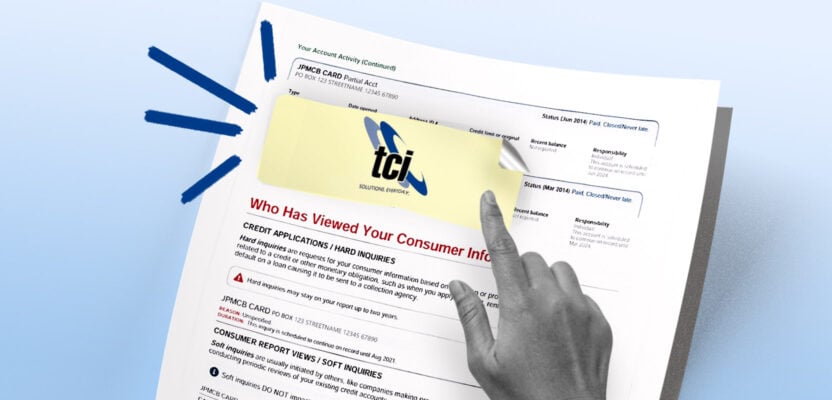Did Total Card ask you to pay off a debt they say you owe? If it was the first time, it won’t be the last. Your best bet is to spring into action immediately and demand more information about the debt, or even dispute that you owe it. You have that right under federal law—don’t waste it.
Table of Contents
What is BOM/TCI-TV?
BOM/TCI-TV is a mark that will appear on your credit report if you have a debt that’s been sent to collections. This acronym isn’t very intuitive, but it’s associated with debts being collected by the collection agency Total Card.
Breaking down the acronym
Here’s what the elements in BOM/TCI-TV stand for:
- BOM: This stands for Bank of Missouri.
- TCI: As you can probably guess, this stands for Total Card, Inc., the name of the company that’s collecting your debt.
- TV: This stands for “Total Visa,” a type of credit card issued by the Bank of Missouri.
What is Total Card and why are they calling me?
As mentioned, Total Card is a debt collection agency—a company that collects severely overdue debts that consumers owe to other businesses. Debt collectors often collect for companies such as:
- Banks
- Credit card issuers
- Healthcare providers (if they perform medical bill collections)
- Universities (if they perform student loan collections)
- Utility companies
- Telecom/phone companies
If Total Card is calling you, they probably think you have an unpaid debt. There’s only one reason for a debt collector to contact you—they want to pressure you into paying up.
Unfortunately, Total Card representatives will keep trying to contact you unless you pay the debt, prove that it doesn’t belong to you, or reach an agreement with them (or with your original creditor). We’ll go over your options below.
Total Card, Inc. Contact Information
If you want to remove BOM TCI TV from your credit report, write to their address:
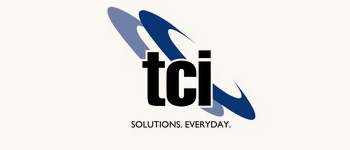
Address: 5109 S Broadband Ln
Sioux Falls, SD 57108
Phone Number: (866) 977-5888
Website: tcisolutions.com
Disputing an incorrect entry on your credit report can be stressful and difficult. Consider working with a professional.
VIDEO: Total Card in 2 Minutes—Fix Your Credit Report & Know Your Rights
How to stop Total Card from calling you
Total Card will call, email, or mail you if they believe you have an unsettled debt. The reason debt collectors like these are calling you is simple—they want to pressure you into paying up.
Unfortunately, Total Card representatives will keep trying to contact you unless you pay the debt, prove that it doesn’t belong to you, or reach an agreement with them (or with your original creditor). The best way to stop contact from Total Card is to force them to verify you owe the debt.
How to verify you actually owe Total Card
A debt verification letter is a formal request that obligates a debt collector to provide further evidence of a debt. You must send it within 30 days of them first contacting you. Note that Total Card should have sent you a debt validation letter proving you owe the debt first, as it’s required by law.
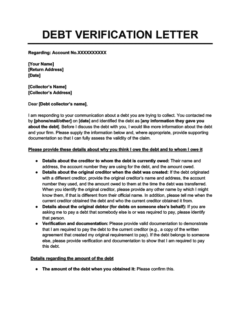
Debt Verification Letter
Use this debt verification letter template if Total Card has contacted you about a debt and you want to dispute it. If you send this within 30 days, they're legally obligated to respond with evidence of the debt and can't contact you until they do.
How to remove Total Card from your credit report
Collections on your credit report hurt your credit score. You can try the following strategies to remove Total Card from your credit report:
1. Dispute the debt with all three credit bureaus
If you think that the debt associated with Total Card on your credit report is illegitimate (e.g., if you paid it on time or it belongs to somebody else), dispute the item on your credit report.
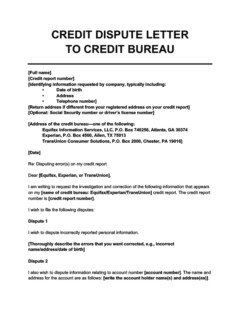
Credit Dispute Letter
If Total Card is on your credit report by mistake, the credit bureaus have to remove it from your report. Use this credit dispute letter template to file a dispute about Total Card directly with any of the credit bureaus.
2. Negotiate with Total Card
Unfortunately, if the debt is legitimate and it’s less than 7 years old, removing Total Card from your credit report will be very difficult (although not impossible), and you may need to pay up.
If you decide to pay, there are two negotiation strategies you can try as a last-ditch attempt to remove Total Card from your credit report:

Negotiate Pay for Delete with Total Card
You might be able to convince Total Card to remove the negative mark in exchange for paying off the debt with this pay-for-delete letter.
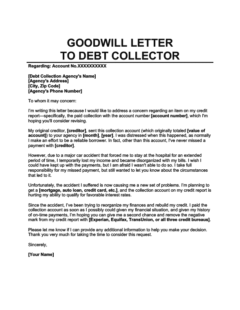
Negotiate a Goodwill Deletion with Total Card
If you've paid off your debt, send Total Card a goodwill letter with this template asking them to remove the mark from your credit report as an act of kindness.
3. Wait 7 years for Total Card to fall off of your credit report
Unfortunately, most collection accounts will stay on your credit report for 7 years after your first missed payment. Even if you pay off your debt to Total Card, it will remain on your credit report.
What to do if Total Card harasses you
Unless you tell them not to, Total Card will keep contacting you until you pay off or settle your debt. However, there are restrictions on how they can go about doing this.
Restrictions on Total Card
- Total Card must adhere to the regulations specified in the Fair Debt Collection Practices Act, which bars them from behavior like lying to you or calling you incessantly or at unreasonable hours.
- Total Card representatives also need to follow the rules set out in the Telephone Consumer Protection Act. It’s a good idea to familiarize yourself with these laws so that you can take action against Total Card if they do something illegal.
If you believe Total Card is violating your rights, keep a paper trail. You can:
- Sue Total Card for harassment and can collect $1,000 in statutory damages for each violation as well as payment for any damages that you’ve sustained as a result of their violation. Total Card will also have to pay your attorney fees and court costs.
- Report them to the Federal Trade Commission, the Consumer Financial Protection Bureau, or your state attorney general.
